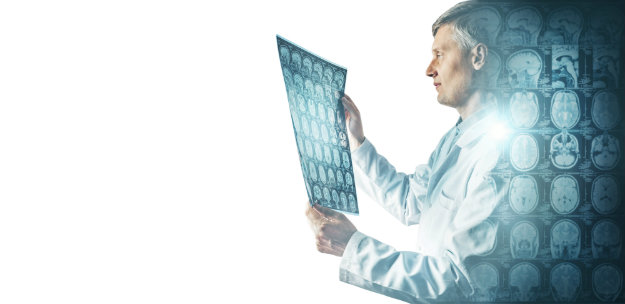Can a CT Scan Show a Concussion or Head Injury?
Whether you experience symptoms of an injury to the brain right away or they are delayed, your doctor may suggest a CT scan for a concussion. You may even request a scan yourself. In either case, you are likely to have questions about how CT scans work and whether a CT scan can show a concussion. Here is what you should know.
Traumatic brain injuries can occur from a fall, car accident or injury during physical activity. Head injuries are a scary experience. You know that you hit your head hard, but you cannot see the damage inside your brain. Even if you feel fine at first, you can still develop symptoms later, such as difficulty with balance, intolerance to bright light, speech difficulties, problems with concentration, and difficulty regulating your mood.
Understanding a CT Scan of the Head
A CT scan, which stands for computed tomography, is an imaging test that enables physicians to visualize the inside of your body. This type of medical technology combines computer technology and X-rays to provide detailed pictures of parts of your body that you or your doctor would not be able to see otherwise. CT scans provide a significantly greater amount of detail than X-rays, especially in imaging brain tissue and blood vessels. If you feel nervous about the procedure, there is no need to be. It is fast and painless.
During the exam, a thin beam of X-ray circles around your head. The purpose of this is to provide your doctor with multiple images of your brain from various angles. CT scan photos are two-dimensional. The computer then stacks each image on top of the next to create a clear picture.
CT scans do use radiation. For a CT scan of the brain, your technician may use a radiation dose of 1.6 mSv, which is equivalent to the combined natural radiation exposure in your environment over seven months. However, more often than not, the benefits of receiving a CT scan outweigh the possible risks. Learn more about potential risks of CT imaging.
What a Head CT Scan Typically Shows
If you experienced a blow to the head, a CT scan may or may not show that you have any structural damage to your brain. This is because some head injuries cause microscopic changes at the cellular level without changing the brain structures in any way. That being said, a CT scan can be used to detect bleeding in the brain and skull fractures in people with recent head injuries.
Your physician will recommend a head CT scan, depending on the type of injury you have. It’s best to get this done right away, especially if you have symptoms of a concussion. Late diagnosis or lack of treatment increases the risk of further complications. Imaging tests can help people get on the road to recovery quicker. If the results come back inconclusive, your physician may recommend that you undergo another type of imaging test, such as a magnetic resonance imaging (MRI) scan.
American Health Imaging Offers Several Types of Imaging Tests
American Health Imaging (AHI), with offices in Georgia, Alabama, Florida and Texas, is an independent imaging center that offers CT, MRI and several other types of diagnostic tests. Because we focus solely on imaging, we offer our services at a lower cost than you would pay for having your imaging test performed at a hospital.
After your doctor refers you to your closest center, we contact you to obtain additional information about the reason for your CT scan, whether it be that you suffered a concussion, broke a bone, or have another condition or injury that requires imaging. A staff member will assist you in scheduling your appointment. You will typically receive results from your referring physician within 24 hours. If this sounds like a better way to have an imaging test performed, contact AHI today to learn more.
Wondering what you should wear for your CT scan or approximately how much your exam will cost? We have answers to your frequently asked questions. Learn more about CT imaging.
